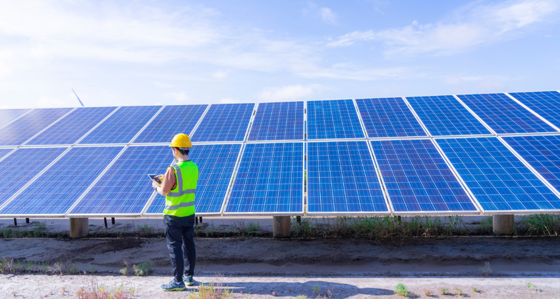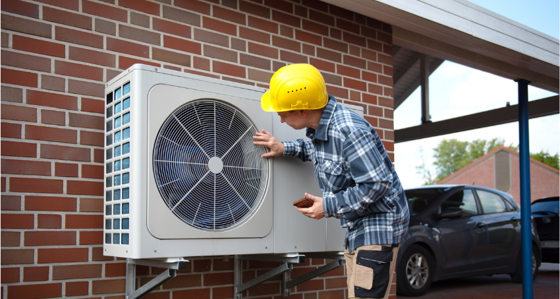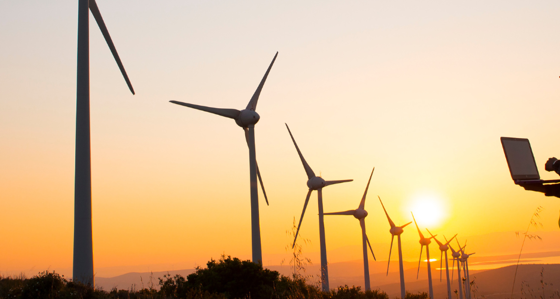
Global Energy Perspectives Live: Is the energy transition in Europe at risk and how do we respond?
14 October 2022
At a recent event in Berlin, we invited some of Europe’s leading energy and industry experts and innovators to debate the state of the energy transition in Europe. This event marked the launch of Baringa’s Berlin office, and follows the opening of another office location in Munich, alongside our long-standing German headquarters in Düsseldorf.
We were delighted to be joined by a brilliant panel: Dr. Pinar Bilge (Stadler), Martin Supancic (Sonnedix), Christian Bogatu (SPRIN-D, Bundesagentur für Sprunginnovationen) and Paul Hennemeyer (Avrio Energy).
In the summary video and article below, we round up some of the key points from the event. If you'd like to see the full recording of the entire session, you can find this at the bottom of the page.
Video summary
Written summary
Setting the scene – what got us here…
Setting the scene for discussion, Baringa’s Ilesh Patel noted that for 20 years, Europeans have been lucky to have cheap energy and largely secure supplies. “That’s now all changed,” he told the audience.
The so-called ‘trilemma’, the trade-off between decarbonisation, energy costs and security of supply, must be viewed through new challenging perspectives, of the Ukraine crisis and a post-Covid world. More than ever, innovation must play a key role in solving this.
While the challenges ahead are many and real, the Ukraine crisis may prove to be a boon to the energy transition in the medium term, as economies move away from expensive fossil fuels for power and heating needs.
A quick look back
The year 2021 was a high point for target setting, with governments competing to set net zero and decarbonisation-related goals, but without much substance behind them.
More encouragingly, energy-related commitments from large corporates showed real potential. Decarbonisation will happen when companies use less energy or less carbon intensive energy. For example, many of the tech giants committed to negative emissions by 2030 and backed this up with real action in terms of signing contracts, decarbonising their backup power and driving energy efficiency in their data centres.
This is particularly encouraging because, to a large degree, we know how to decarbonise the power system using existing technologies. Addressing the 75% of emissions which sit in the real economy (industrial, manufacturing, transport) is more challenging, but these tangible commitments coming from the private sector are very encouraging
Gas, with added complications
We must not forget that gas prices in Europe and LNG markets were already surging in the winter of 2021, because of a huge surge in gas demand in China and Japan. That led to several security-of-supply challenges that were felt particularly in Germany, Belgium and the Netherlands. This has also fed into customer bills, making the problem overtly political. Obviously, the Ukraine invasion has compounded that.
In addition, a post-Covid world faces real supply chain constraints. It’s much harder to get essential components required for the energy transition, and it’s more expensive because of the commodity price boom.
The big risks to the energy transition
In short, Europe faces four big risks: a gas and power price shock; economic malaise in the form of stagflation; continued energy security concerns; and political tensions.
Clearly, they are interconnected and they share inflection points: such as the prospect of enforced blackouts, something that was not remotely on the radar a few years ago. This will particularly impact the political context of an energy environment that is already under the microscope, with debates around price caps and windfall taxes for instance.
Across Europe, the consensus around energy and decarbonisation that has long prevailed, is showing visible signs of strain. With high prices set to last at least a couple of winters, this is a problem to watch for the whole energy industry and anyone interested in boosting investment and intelligent market design.
Outlook for Europe – short-term pain, long-term gain?
Baringa’s modelling suggests that the pathway for European emissions is one of significant increases for the next five years. But the credibility of individual country commitments to decarbonise the power sector means we can hope for a faster transition in the late 2020s and early 2030s. We will pay a price now in the belief that we can pay it back over the next decade.
Political will vs market reality
On one hand, Germany’s new coalition has set new initiatives to ramp up installed megawatts, energy efficiency and take down permitting barriers.
For instance, the German government has provided a road map to more than triple the installed solar capacity to the end of 2030 to 215GW, by end of 2040 to reach 400GW.
But how realistic is this? It has taken 20 years to achieve 60GW in Germany, an impressive feat that is as much as is installed in France, Spain and Italy combined. To more than triple that in 8 years is quite ambitious.
There are many other bottlenecks. How national law is transposed at regional levels and whether the regional governments have sufficient professionals to assess projects, which currently suffer a large backlog.
All this is now compounded with a macro picture of rising CAPEX, OPEX and interest rates, making investment prospects much tougher.
Innovation could be the right horse (unicorn?) to back
The power of innovation can only be revealed by example. SPRIN-D, Germany’s federal agency for innovation, is working with an innovator that working on the concept of a second storey for existing wind parks, at 380m height. So rather than be held up by finding the land to build the turbines, developers can just build skywards.
The agency is also working with an innovator to extract CO2 from the atmosphere. Whereas biomass competes with agriculture and other land use, a company called Seafields creates massive algae farms in the ocean from which it can harvest biomass and convert it into safe, commercially useful material.
Indeed, Germany has a mature innovation infrastructure, including innovators, private and public funders, as well as commercial companies like Stadler that are seeking out existing technologies and find innovative ways to apply them to the energy transition. An example is its Flirt AKKU trains that harvest electricity from the rail and can therefore traverse large sections of track on battery.
This presents an open question: should we back hundreds of different technologies, or just pick a limited number that we think have the greatest potential?
Too much regulation… or not enough?
Our panellists cited several areas where regulations were holding innovation back; such as long-duration energy storage, which is double taxed in Germany.
But also where greater standardisation across the EU would speed up the transition. The success of German rooftop PV compared to its much sunnier southern neighbours, for instance, is a great example of the power of wise regulation.
Want to find out more?
As Germany grapples with the energy transition, Baringa is supporting companies across the energy value chain as well as large industry players to manage this shift. Contact Jochen Herrmann, our Partner in Energy and Resources, Germany to learn how we can support your business.
Watch the full session
Related Insights

Podcast - S2 E8 – How ‘Energy-as-a-Service’ models unlock commercial decarbonisation
Tim Meanock, CEO and co-founder of Tallarna, joins Ellen Fraser and Daniel Bolton to discuss Energy-as-a-Service (EaaS) as an innovative solution for commercial decarbonisation.
Read more
Driving UK decarbonisation in a new policy era
At Baringa’s sixth Green Buildings and Transport Forum in November 2024, we discussed domestic decarbonisation in the context of the new UK government.
Read more
Navigating sustainable retrofit in real estate
Achieving successful sustainable retrofitting in real estate can seem like a complex challenge. Discover how your organisation can unlock the strategic value of retrofitting with our new report, commissioned by Barclays and in collaboration with JLL, Travis Perkins and TrustMark.
Read more
Renewables Market Scanning Report
Which are the most attractive markets for investing in renewable assets globally?
Read moreIs digital and AI delivering what your business needs?
Digital and AI can solve your toughest challenges and elevate your business performance. But success isn’t always straightforward. Where can you unlock opportunity? And what does it take to set the foundation for lasting success?